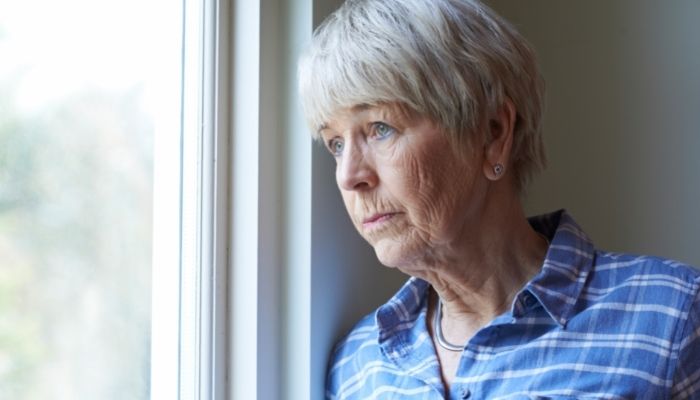What is grief? As a provider of palliative care at home services, we know that there is no right or wrong when it comes to grieving. However, there are healthy ways to handle the grieving process.
When you or your loved ones grieve, it can be difficult to know what to say or do. Grieving may bring out many intense emotions, including profound sadness and depression. Getting help from your close friends or professionals may be your first step to getting help.
What’s the use of understanding grief? The simple answer is that you can help yourself or your loved ones with the symptoms of grief. Read on to learn more about what is grief and how you can get help or help your loved ones.
What is grief?
Grief is our response to loss. Sometimes, it can be an overwhelming and strong emotion that stems from sadness when we lose something or someone. You may experience all kinds of difficult emotions, from shock to guilt to disbelief.
Grieving is not weakness. It is a necessary emotion that you have to go through to accept reality. It’s an emotion that acts as a tribute to the loss of something precious.
To cope with grieving or help someone from grieving, you must know the possible causes:
- Loss of job
- A miscarriage
- Breakup or divorce
- Retirement
- Loss of a friend
- Selling a family home
- Death of a loved one
- Loss of a dream
- Death of a pet
Subtle losses in life can trigger your sense of grief. If it’s personal to you, it’s normal for you to grieve for these things.
Stages of grief
Grief comes in five stages as you come to accept the terms of your loss. You may not be able to control the process. However, knowing the reason behind your emotions may help you cope easier.
Denial is the first stage. This is where you may think, “This is not happening.” It’s a temporary method to deal with the sudden rush of strong emotions.
The next is anger, where the reality starts to settle in. You may feel helpless and frustrated. You might direct this anger at other people, objects, or life in general.
Bargaining is the stage where you might dwell on what you could have done to prevent this loss. It’s the stage where you try to strike an agreement with a higher power.
The fourth stage is depression. This is where you begin to understand your loss and the effect it has on your life.
Finally, the last stage of grief is acceptance. You start to accept the reality of this loss. Although you may feel sad, you are now able to move forward.
Symptoms of grieving
While grief may affect you in different ways, many experience common symptoms. In the early stages of grief, you may feel like you’re losing your mind. It may seem like you’re in a bad dream, or you’ll start questioning your spiritual and religious beliefs.
Other emotional symptoms include:
- Sadness
- Fear
- Anger
- Disbelief
- Guilt
Aside from the emotional pain, you may also experience physical issues. You might feel fatigued, aches, pains, insomnia, and lowered immunity.
How to help yourself
Getting help is the number one priority when you understand that you are currently grieving. Carrying your loss alone will be a heavier burden than sharing that grief with others. Lean towards the people who care about you, including your family and friends.
Understand that many of your friends may not know how to help you when grieving. They may feel unsure of how to comfort you and end up doing or saying the wrong things. However, if they reach towards you, know that they do so because they care.
Aside from getting help from those who you’re close to, consider getting treatment or therapy. If your grief may feel like it’s too much to bear, it’s best to find a mental health professional. A trustworthy therapist can guide you through your intense feelings and overcome any obstacles as you grieve.
Grief can be quite lonely, even while you have your loved ones around you. Consider sharing your sorrow with other people who experienced similar losses. Join a support group to get you through tough times while grieving.
Start by facing your emotions. Suppressing your grief may only prolong your grieving process. Unresolved grieving may lead to more complicated feelings, such as anxiety, depression, and other health issues.
You can express your grief in many creative and tangible ways. Try writing your feelings down in a journal or make a scrapbook that celebrates the person’s life. You can also join organizations or a cause that was significant to your loved one.
Try to maintain your interests and hobbies. There is comfort in keeping up your routine and enjoying activities that bring you joy. Don’t forget to keep your physical body healthy with proper meals and workouts.
Never let anyone describe your feelings for you, and don’t tell yourself what to feel either. Your grief is your own, so you can’t let anyone or yourself tell you that it’s time to move on.
How to help your loved ones
When your loved ones are grieving, it’s best to reach out and listen to what they have to say. Ask how they feel and if needed, let them retell the story to lessen the pain. Repeating the story is a method for your loved ones to process and accept their loss.
Note that your loved one may have difficulties asking you for help. They may feel guilty about receiving too much attention and fear being a burden. Also, a grieving person may not have enough motivation or energy to ask for help.
Reach out to your loved one and consistently offer practical assistance. You can offer to stay over, help with errands, or take them out for a walk or to watch a movie. Always stay in touch with your loved ones and never let them be alone while they grieve.
Get help when grieving
Grieving is a process that you and your loved ones don’t have to do alone. Accepting help and offering assistance can help anyone get through the process of grief. There are a number of free telephone helplines that can assist you and your family. We have listed them below:
- COVID-19 Related Aged Care Grief and Bereavement Support – 1800 22 22 00
- Lifeline – 13 11 14
- Beyond Blue – 1300 224 636
- Suicide Line – 1300 651 252
- Griefline – 1300 845 745



